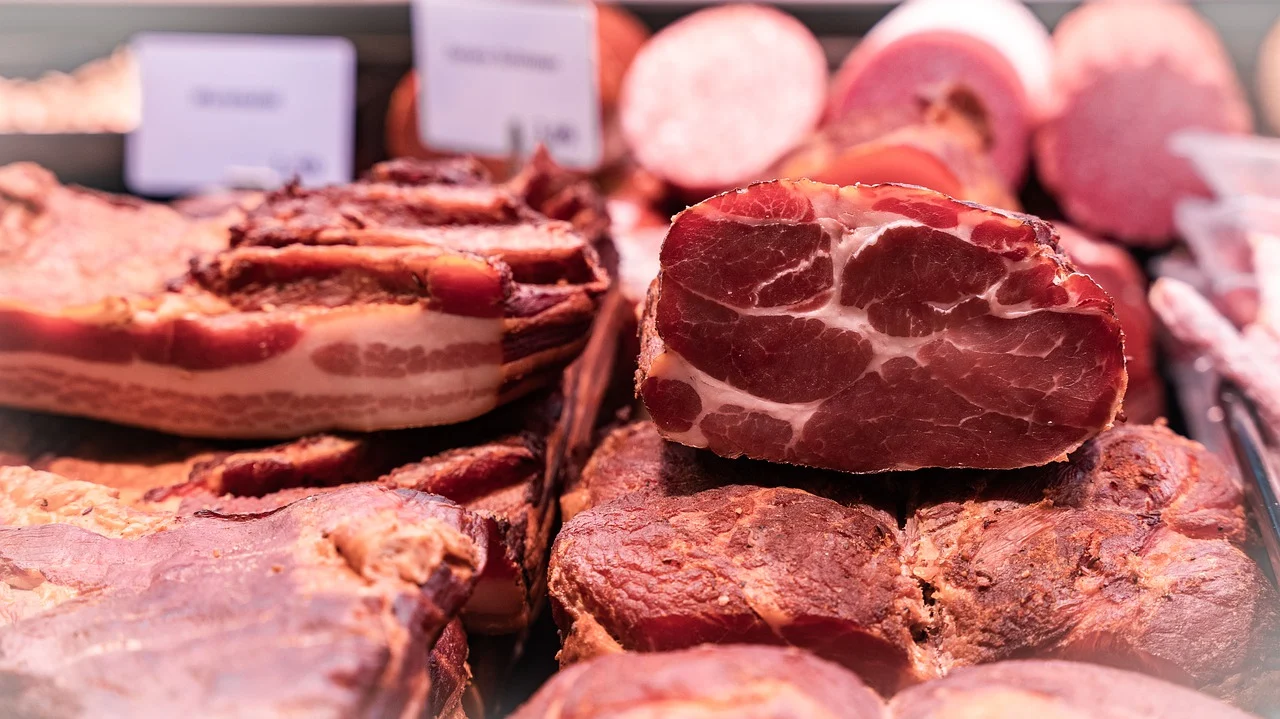Here are the top 20 sources of protein for a raw diet in dogs, including detailed nutritional analysis and three vegetable options:
- loriww
- Feb 18, 2025
- 2 min read
Animal Protein Sources
1. Chicken
- Protein: 25-30g per 100g cooked
- Nutrients: Rich in B vitamins (niacin, B6), phosphorus, selenium[1]
2. Beef
- Protein: 26g per 100g cooked
- Nutrients: High in iron, zinc, vitamin B12[1]
3. Turkey
- Protein: 28g per 100g cooked
- Nutrients: Good source of B vitamins, selenium, phosphorus[1]
4. Lamb
- Protein: 25g per 100g cooked
- Nutrients: Rich in iron, zinc, B vitamins, omega-3 fatty acids[1]
5. Fish (Salmon)
- Protein: 20-25g per 100g cooked
- Nutrients: High in omega-3 fatty acids, vitamins D and B12[1]
6. Rabbit
- Protein: High (specific amount not provided)
- Nutrients: Lean meat, low in fat[3]
7. Venison
- Protein: High (specific amount not provided)
- Nutrients: Low in fat, highly digestible, suitable for dogs with allergies[5]
8. Eggs
- Protein: 6g per large egg
- Nutrients: Rich in vitamins A, D, E, B12, riboflavin, and folate[3]
9. Kangaroo
- Protein: High (specific amount not provided)
- Nutrients: Low in fat, rich in iron and zinc[6]
10. Wild Boar
- Protein: High (specific amount not provided)
- Nutrients: Lean meat, rich in iron and B vitamins
11. Duck
- Protein: 23g per 100g cooked
- Nutrients: Rich in iron, zinc, and B vitamins
12. Goat
- Protein: 27g per 100g cooked
- Nutrients: Low in fat, high in iron and potassium
13. Bison
- Protein: 28g per 100g cooked
- Nutrients: Low in fat, high in iron and vitamin B12
14. Quail
- Protein: 25g per 100g cooked
- Nutrients: Rich in B vitamins, iron, and zinc
15. Organ Meats (Liver, Kidney, Heart)
- Protein: Varies, generally high
- Nutrients: Rich in vitamins A, B complex, iron, and zinc[6]
16. Sardines
- Protein: 25g per 100g
- Nutrients: High in omega-3 fatty acids, calcium, and vitamin D
17. Mackerel
- Protein: 19g per 100g
- Nutrients: Rich in omega-3 fatty acids, vitamin B12, and selenium
Vegetable Protein Sources
18. Pumpkin
- Protein: 1g per 100g
- Nutrients: Rich in fiber, vitamins A and C, potassium[9]
19. Green Beans
- Protein: 1.8g per 100g
- Nutrients: High in vitamins C, K, and fiber[2]
20. Broccoli
- Protein: 2.8g per 100g
- Nutrients: Rich in vitamins C, K, fiber, and antioxidants[4]
Nutritional Analysis
Animal proteins are generally more complete and easily digestible for dogs, providing essential amino acids[1]. Fish sources offer beneficial omega-3 fatty acids[1]. Organ meats are nutrient-dense, providing high amounts of vitamins and minerals[6].
Vegetable proteins, while lower in overall protein content, offer additional benefits:
- Pumpkin aids in digestion and can help with both diarrhea and constipation[9]
- Green beans are low in calories and high in fiber, making them good for weight management[2]
- Broccoli provides antioxidants and supports immune health[4]
When incorporating these protein sources into a raw diet, it's crucial to ensure proper balance and variety. Consult with a veterinary nutritionist to create a diet that meets your dog's specific nutritional needs.
Citations:
[1] https://tibetandogchew.com/blogs/blog/10-best-protein-sources-for-dogs
[2] https://www.pawlicy.com/blog/vegetables-dogs-can-and-cant-eat/
[3] https://be.chewy.com/best-sources-protein-pets/
[4] https://dogchild.co/blogs/learn/should-dogs-eat-vegetables
[5] https://dogchild.co/blogs/learn/best-proteins-for-your-dog
[6] https://paringapetfoods.com.au/blogs/news/the-ultimate-guide-to-raw-diet-for-dogs
[7] https://petzyo.com.au/blogs/guides/guide-to-raw-food-diet-for-dogs
[8] https://www.bentonsroadvet.com.au/what-vegetables-can-i-feed-my-dog/


















Comments